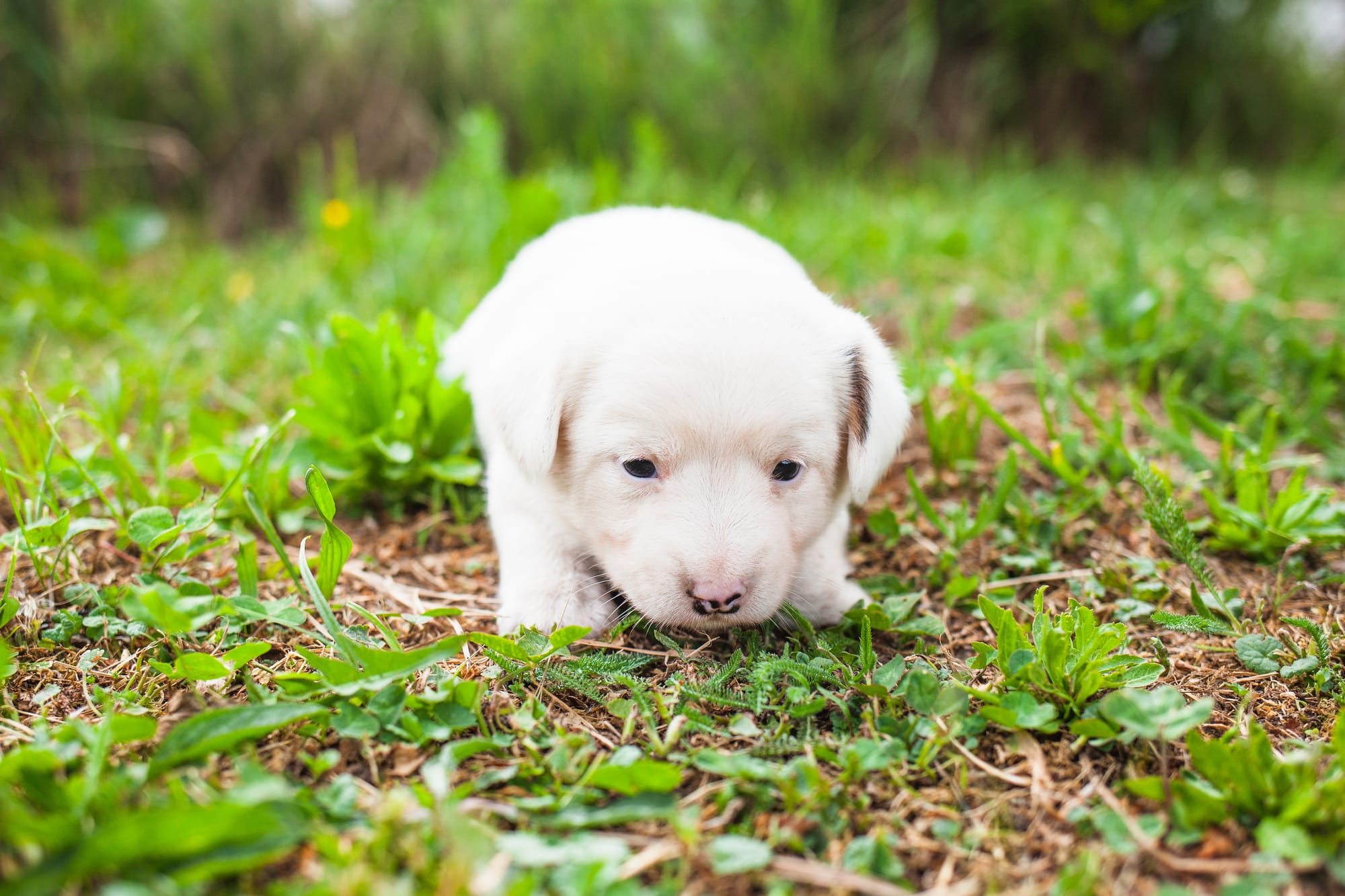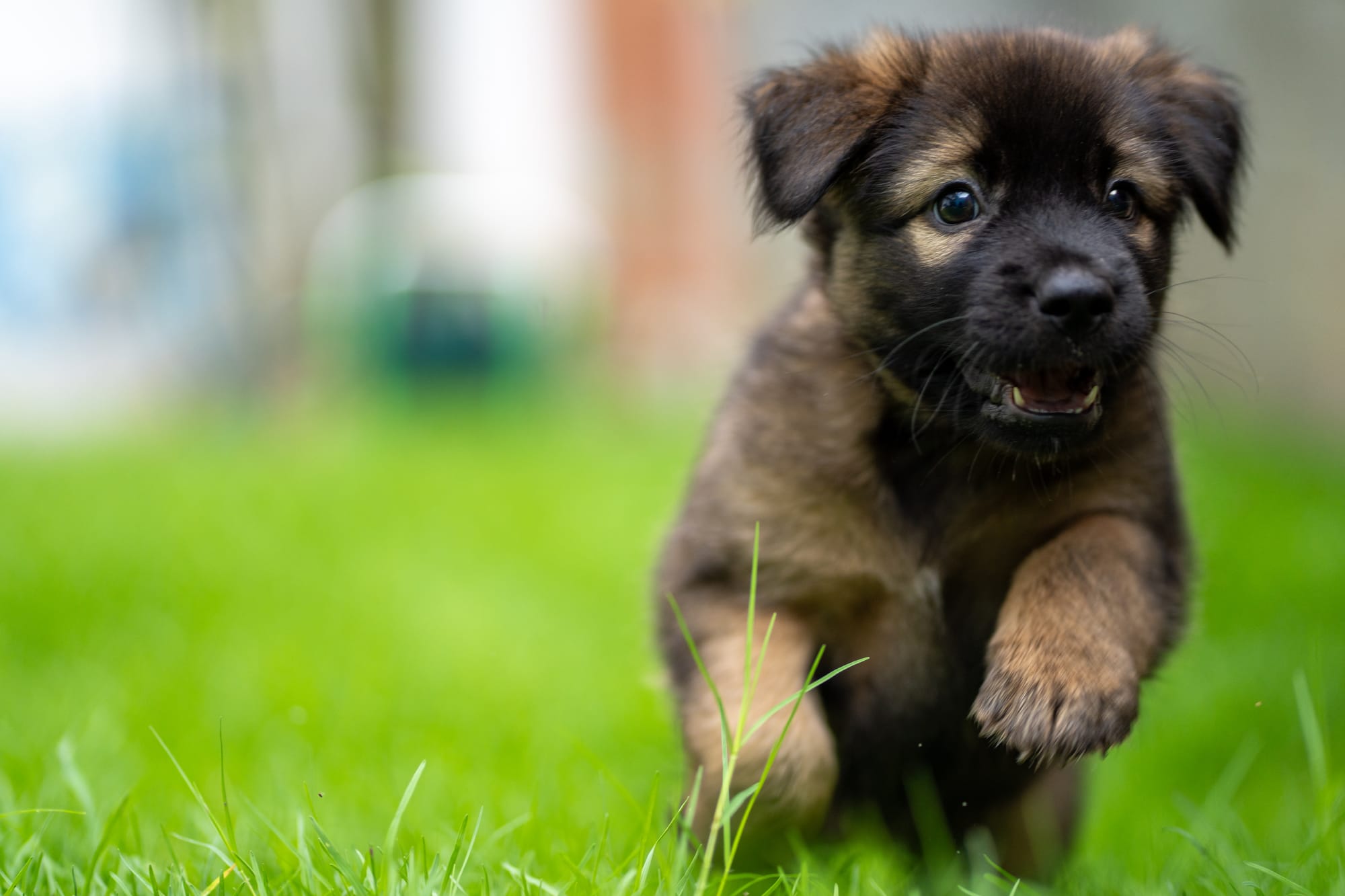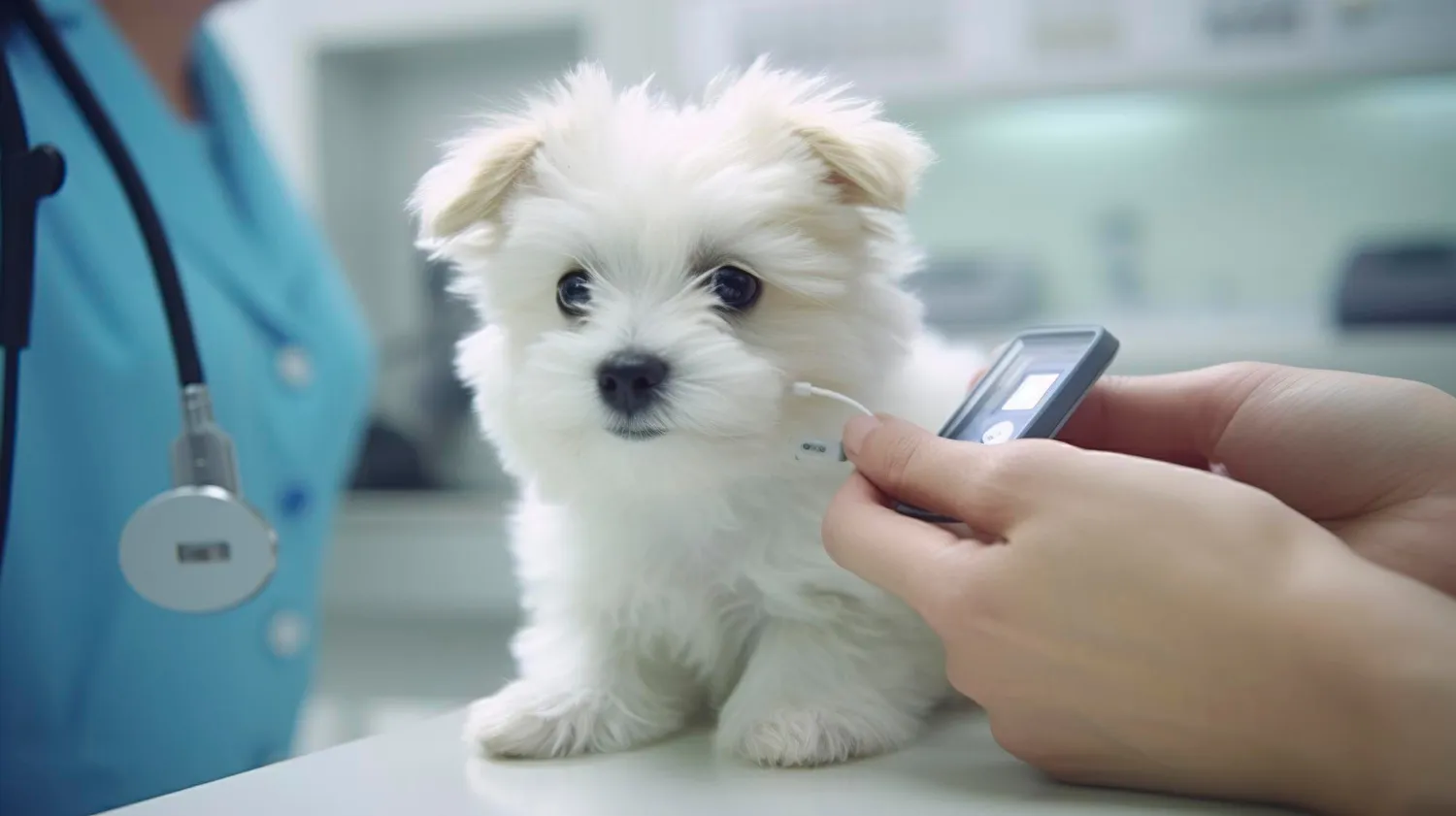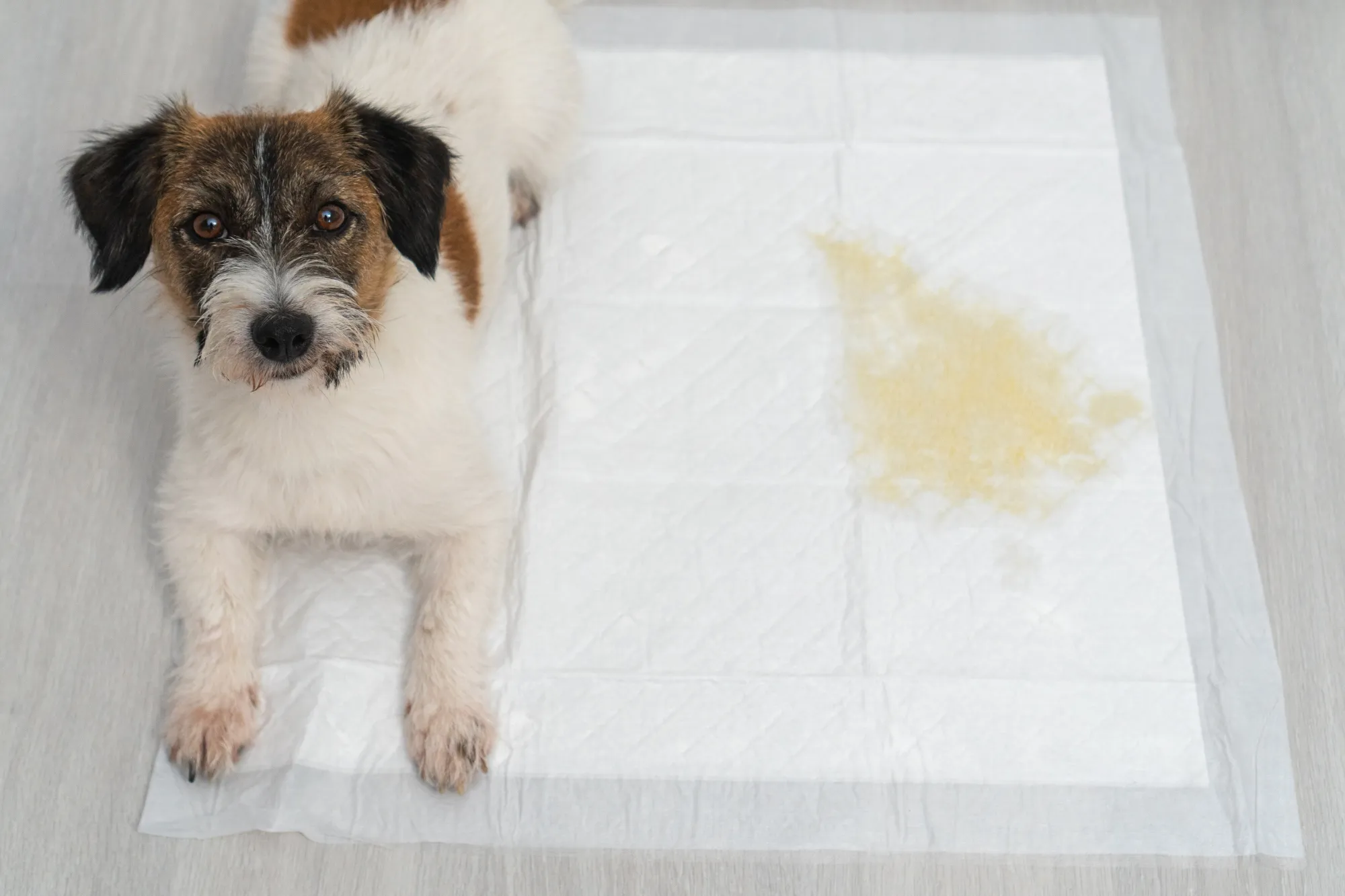Puppies are adorable and playful creatures that bring joy and excitement to any household. However, as cute as they may be, they can also be quite a handful, especially when it comes to potty training. One common issue that many puppy owners face is excitement urination, where their furry friend accidentally pees when they get overly excited or anxious. This can be frustrating for owners and embarrassing for the puppy, but the good news is that it is a normal part of the puppy development process.

So, when do puppies outgrow peeing when excited? The answer varies depending on the individual puppy and their training progress. Generally, puppies will start to gain better control over their bladder as they mature and their muscles strengthen. However, some puppies may take longer than others to outgrow excitement urination, and it may require patience and consistent training from their owners. In this article, we will explore the causes of excitement urination in puppies, how to prevent it, and when to seek professional help.
Understanding Puppy Development
Age and Growth
Puppies grow and develop at a rapid pace during their first few months of life. At around 8 weeks of age, puppies are generally ready to leave their mother and go to their new homes. At this age, puppies have limited control over their bladder and bowel movements and may pee when excited or scared.
As puppies continue to grow, they develop stronger bladder control and can hold their urine for longer periods of time. By the time a puppy is 6 months old, they should be able to hold their urine for 6-7 hours during the day and up to 8 hours at night.
Bladder Control
Bladder control is an important aspect of puppy development. It is important to note that all puppies develop at their own pace and some may take longer than others to gain full bladder control.
Young dogs typically need to urinate more frequently than adult dogs due to their smaller bladder size and less developed bladder muscles. Puppies may need to go outside to urinate as often as every 30 minutes to an hour during the day, and every 2-3 hours at night.
It is important for puppy owners to be patient and consistent with potty training to help their puppies gain control over their bladder. Positive reinforcement and frequent trips outside can help speed up the process.
Overall, puppies outgrow peeing when excited as they continue to develop and gain control over their bladder. With patience and consistency, most puppies can be fully potty trained by the time they are 6 months old.
Behavioral Aspects of Excitement Urination

Excitement urination is a common issue among puppies that can be frustrating for their owners. Understanding the behavioral aspects of excitement urination can help owners better manage and prevent this behavior.
Communication and Body Language
Puppies communicate through body language, and excitement urination is often a result of overstimulation and lack of control. When a puppy is excited, they may wag their tail, jump up and down, and make high-pitched noises. However, these actions can also lead to urination, especially if the puppy is not fully house-trained.
To prevent excitement urination, it is important to recognize your puppy's body language and limit their excitement levels. Avoid overstimulating your puppy with too much physical contact or loud noises. Instead, provide them with positive reinforcement for calm behavior.
Submissive Urination
Submissive urination is another form of excitement urination that occurs when a puppy feels intimidated or fearful. This behavior is often seen in puppies that lack confidence or have experienced trauma.
To prevent submissive urination, it is important to build your puppy's confidence through positive reinforcement and training. Avoid scolding or punishing your puppy, as this can exacerbate their fear and lead to more submissive behavior.
Understanding the behavioral aspects of excitement urination can help owners better manage and prevent this behavior in their puppies. By recognizing their body language and providing positive reinforcement, owners can help their puppies grow out of this behavior and become well-adjusted, confident dogs.
Housetraining Techniques

Positive Reinforcement
One of the most effective techniques for housetraining puppies is positive reinforcement. This involves rewarding your puppy for good behavior, such as going potty outside. When your puppy eliminates outside, give them a treat and praise them with a positive tone of voice. This will help your puppy associate going potty outside with positive experiences, and they will be more likely to repeat this behavior in the future.
It is important to note that positive reinforcement should be used immediately after your puppy eliminates outside. If you wait too long, your puppy may not associate the treat and praise with going potty outside. Additionally, it is important to use small, low-calorie treats to avoid overfeeding your puppy.
Routine and Consistency
Establishing a routine and being consistent with it is also key to housetraining your puppy. Puppies thrive on routine and predictability, so try to take your puppy outside at the same times each day. This can include after waking up, after meals, and before bedtime.
When taking your puppy outside, use the same door and the same route each time. This will help your puppy associate going outside with going potty. Additionally, be patient and give your puppy enough time to eliminate outside. Puppies may need to sniff around and explore before they feel comfortable going potty.
In summary, using positive reinforcement and establishing a routine and consistency are effective housetraining techniques for puppies. By rewarding good behavior and providing predictability, you can help your puppy learn to go potty outside and outgrow peeing when excited.
Managing Excitement and Calming Your Puppy

Puppies are naturally curious and energetic, and it's not uncommon for them to get excited and pee when they greet you or other people. However, with proper training and socialization, you can help your puppy outgrow this behavior and become a well-behaved adult dog. Here are some tips to manage your puppy's excitement and calm them down:
Calm Behavior Training
Teaching your puppy to remain calm and composed in different situations is crucial to preventing accidents and creating a positive bond between you and your pet. One effective way to achieve this is by using positive reinforcement training, which involves rewarding your puppy for displaying calm behavior and ignoring or redirecting them when they get too excited.
Some simple exercises you can try include teaching your puppy to sit and stay on command, rewarding them for calm behavior during mealtime, and practicing leash walking in a quiet and familiar environment. By consistently rewarding calm behavior, your puppy will learn to associate good behavior with positive outcomes, and gradually become more relaxed and focused.
Socialization and Greetings
Socialization is another key aspect of managing your puppy's excitement and preventing accidents. Exposing your puppy to different people, animals, and environments from an early age can help them develop confidence and learn appropriate social skills. It's important to introduce your puppy to new experiences gradually and in a controlled manner, so they don't become overwhelmed or scared.
When it comes to greetings, it's important to teach your puppy to approach people calmly and without jumping or peeing. One way to do this is by teaching your puppy to sit and wait before greeting people, and rewarding them for calm behavior. You can also ask your visitors to ignore your puppy until they are calm and composed, and then reward them for appropriate behavior.
Overall, managing your puppy's excitement and teaching them to remain calm and composed is a process that requires patience, consistency, and positive reinforcement. By following these tips and being a responsible dog owner, you can help your puppy grow into a well-behaved and happy adult dog.
Health-Related Concerns

Medical Issues
Puppies who continue to pee when excited beyond their first year may have an underlying medical issue. In such cases, it is important to seek veterinary care to rule out any underlying medical conditions that may be causing the problem.
Urinary tract infections (UTIs) are one of the most common medical issues that may cause a puppy to pee when excited. UTIs are caused by bacteria that enter the urinary tract and cause inflammation. Symptoms of a UTI include frequent urination, straining to urinate, and urinating in inappropriate places. If left untreated, UTIs can lead to more serious health problems such as kidney damage.
Urinary Tract Health
Maintaining good urinary tract health is important in preventing puppies from peeing when excited. This can be achieved by ensuring that the puppy drinks plenty of water and by feeding them a healthy, well-balanced diet.
In addition, it is important to ensure that the puppy is able to urinate regularly. Puppies should be taken outside to urinate at regular intervals throughout the day, and they should be given plenty of opportunities to urinate when they are outside.
If a puppy continues to pee when excited despite efforts to maintain good urinary tract health, it is important to seek veterinary care to rule out any underlying medical conditions that may be causing the problem.
Working with Professionals
When it comes to addressing behavioral issues in puppies, working with professionals can be a helpful step. Two types of professionals that can provide valuable insight and advice are dog trainers and veterinarians.
Consulting a Dog Trainer
A dog trainer can help identify the root cause of a puppy's excitement-induced urination and provide guidance on how to address it. They may suggest exercises to help build the puppy's confidence and reduce their anxiety, such as obedience training and socialization.
It's important to choose a reputable and experienced dog trainer who uses positive reinforcement techniques. They can also provide guidance on how to reinforce good behavior and discourage unwanted behavior, such as ignoring the puppy when they urinate out of excitement and rewarding them when they remain calm.
Veterinary Advice
In some cases, excitement-induced urination may be a symptom of an underlying medical issue. Consulting with a veterinarian can help rule out any medical causes and provide guidance on how to manage the behavior.
Separation anxiety can also contribute to excitement-induced urination, and a veterinarian can provide guidance on how to manage this condition as well. They may suggest medication or behavioral therapy to help reduce the puppy's anxiety.
Overall, working with professionals can provide valuable insight and guidance on how to address excitement-induced urination in puppies. By taking a proactive approach and seeking out help, owners can help their puppies overcome this behavioral issue and live happy, healthy lives.
Practical Tips for Puppy Owners

Designated Bathroom Areas
One of the most important things that a puppy owner can do to help their pup outgrow peeing when excited is to establish designated bathroom areas. This means creating a specific spot in the yard or outside of the house where the puppy can go to relieve themselves. This not only helps the puppy understand where they are supposed to go, but it also helps to reinforce the idea that going potty is an outdoor activity.
When choosing a designated bathroom area, it's important to consider factors such as ease of access, privacy, and cleanliness. Ideally, the area should be easily accessible for both the puppy and the owner, while also offering some degree of privacy. It's also important to keep the area clean and free of debris, as this can help to prevent the puppy from getting distracted or uncomfortable.
Potty and Bathroom Breaks
Another important aspect of helping a puppy outgrow peeing when excited is establishing a regular schedule for potty and bathroom breaks. This means taking the puppy outside at regular intervals throughout the day, such as first thing in the morning, after meals, and before bedtime.
It's also important to pay attention to the puppy's behavior, as this can often be a good indicator of when they need to go outside. For example, if the puppy starts sniffing around or circling, this may be a sign that they need to go potty. By establishing a regular routine and paying attention to the puppy's behavior, owners can help their pups outgrow peeing when excited and develop good bathroom habits.
Responding to Accidents
When a puppy has an accident due to excitement, it is important to respond in a way that will encourage them to learn and improve their behavior. There are two main approaches: avoiding negative reactions and reinforcing desired behaviors.
Avoiding Negative Reactions
Scolding or punishing a puppy for having an accident can actually make the problem worse. This is because they may associate the punishment with the act of peeing, rather than the excitement that caused it. Instead, it is better to remain neutral and calm, and simply clean up the mess without drawing attention to it.
Avoiding eye contact with the puppy during and after the accident can also be helpful, as it reduces the chance of them feeling anxious or stressed. If the puppy seems to be getting overly excited, it may be helpful to redirect their attention to a toy or activity that they enjoy.
Reinforcing Desired Behaviors
When a puppy successfully goes outside to pee, it is important to reinforce this behavior with positive reinforcement. This can be done by giving them treats, praise, or attention. It is also helpful to establish a consistent routine for taking the puppy outside to pee, such as after meals or naps.
Video can be a useful tool for monitoring the puppy's behavior and progress. By recording their behavior during moments of excitement, it may be possible to identify triggers and work on strategies to mitigate them. It can also be helpful to record the puppy's successful trips outside to pee, as a way of tracking progress and reinforcing positive behaviors.
Overall, responding to accidents caused by excitement requires patience, consistency, and a focus on positive reinforcement. By avoiding negative reactions and reinforcing desired behaviors, it is possible to help a puppy outgrow peeing when excited.
Conclusion
In conclusion, while excitement urination is a common and sometimes frustrating issue faced by puppy owners, it is a natural part of a puppy's development that can be managed with patience, understanding, and the right approach. Recognizing that this behavior often diminishes as puppies grow and gain better control over their bladder is crucial. By employing effective housetraining techniques such as positive reinforcement, establishing a routine, and creating designated bathroom areas, owners can greatly assist their puppies in overcoming excitement urination.
Additionally, understanding the behavioral aspects and ensuring proper socialization and calm behavior training are key to managing and eventually eliminating this issue. It's also important for owners to be aware of potential health-related concerns and to consult professionals for guidance when necessary.
With a consistent and positive approach, most puppies will outgrow peeing when excited, developing into well-adjusted and confident adult dogs. Patience, consistency, and a focus on positive reinforcement are the cornerstones of helping puppies navigate this phase of their development successfully.
FAQs
- What is excitement urination in puppies?
- Excitement urination refers to the involuntary release of urine by puppies when they are overly excited or anxious. This behavior is common among young dogs who have not yet fully developed their bladder control.
- At what age do puppies usually outgrow peeing when excited?
- Puppies typically start to gain better control over their bladder as they mature, usually around 6 months of age. However, the exact age can vary depending on the individual puppy and their training progress.
- What causes excitement urination in puppies?
- Excitement urination is often caused by a lack of bladder control due to the puppy's young age, along with overstimulation and anxiety in exciting or stressful situations.
- How can I prevent excitement urination in my puppy?
- Preventing excitement urination involves managing your puppy's excitement levels, using positive reinforcement for calm behavior, establishing a routine, and ensuring consistent and frequent potty breaks.
- Is excitement urination a sign of a medical issue?
- While excitement urination is typically a developmental phase, persistent issues beyond the puppy phase might indicate an underlying medical problem, such as a urinary tract infection. Consulting a veterinarian is recommended in such cases.
- What are some effective housetraining techniques for puppies?
- Effective housetraining techniques include positive reinforcement for eliminating outside, establishing a consistent routine for potty breaks, and creating designated bathroom areas for your puppy.
- How can I calm my puppy to reduce excitement urination?
- Calming your puppy involves teaching them to remain composed through positive reinforcement training, socialization, and controlled greetings. Rewarding calm behavior and gradually introducing new experiences can help manage their excitement.
- Should I punish my puppy for peeing when excited?
- Punishing a puppy for excitement urination is not recommended, as it can exacerbate anxiety and hinder their learning. Instead, focus on positive reinforcement and calmly managing the situation.
- Can professional trainers help with excitement urination?
- Yes, professional dog trainers can offer valuable assistance in managing excitement urination by identifying triggers, providing behavior modification strategies, and teaching owners effective training techniques.
- What should I do if my puppy continues to pee when excited despite training?
- If your puppy continues to exhibit excitement urination despite consistent training efforts, consulting a veterinarian to rule out medical issues and seeking advice from a professional dog trainer may be beneficial to address any underlying problems.